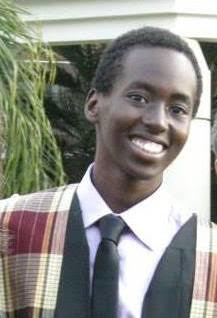
By PETER KRANITZ
On Oct. 14, in a fast-tracked process, the Associated Students of Lewis & Clark College (ASLC) Senate approved a measure that gave the Black Student Union (BSU) a voting representative position.
According to ASLC Vice President Leann Knapp ’16, there has historically been an unofficial trial period for groups seeking representative status in the Senate.
“The protocol was that you have to come to Senate, prove that you’re engaged, prove that you are a group who is going to commit and be actively representing your group,” Knapp said. “After a while, then you can apply to be written into the Constitution as a voting group.”
According to Knapp, BSU began this process earlier this semester and found enough support from Senators to fast-track their approval as a representative group.
“[BSU] has come out with this big burst of activity and engagement [in the last few semesters],” Knapp said. “I also think they were the first to question the status quo in terms of that unspoken rule [regarding the trial period].”
Voting representatives in the Senate have the same responsibilities as senators and are able to vote on Senate measures. Representative positions are given to student groups that are underrepresented in the Senate by class officers. Other groups with representatives include the Feminist Student Union (FSU), International Students of Lewis & Clark (ISLC), the Student Athlete Advisory Committee (SAAC), Multicultural Organizations Seeking an Inclusive Campus (MOSAIC), and the Queer Student Union (QSU).
Previously, BSU was a member of MOSAIC and was represented by a group in Senate. When they separated from MOSAIC earlier this year, BSU began seeking representative status independently. After beginning the process, two senators submitted legislation calling for BSU to receive a vote in the Senate. The Senate voted on and passed the legislation on Oct. 14, giving BSU a voting representative position.
BSU co-president Raymond Fenton ’16, expressed excitement about the closer relationship between BSU and ASLC.
“We now have a direct channel to share BSU updates and keep ASLC in the know so they are willing and ready to come to our aid or collaborate [on projects],” Fenton said.
Fenton hopes that the new status of BSU in the Senate, combined with greater on-campus visibility and a growing number of members, will allow BSU to be eligible for increased funding. He hopes to use these funds to bring more guest speakers to LC, maintain their new office, and host bigger signature events like last year’s Unplugged, a dance party held by BSU.
BSU Student-at-Large Ryan Seed ’17, now also serves as the BSU representative to the ASLC Senate. As Student-at-Large, Seed communicates with other groups and organizations across campus to build and maintain their relationships with BSU. Seed anticipates that the new status of BSU in the Senate will open additional avenues of communication across campus also.
“It has helped us to be recognized by the school as something tangible, something real,” Seed said. “It really opens up opportunities within other departments on campus as well, in addition to having a voice in ASLC.”
He aspires to use his role to promote more communication between college campuses and create a network of support between colleges across Portland.
“I’m looking to have more of an intercollegiate unity so that when things go on [at LC], it’s not just happening here,” Seed said.
He cites the forums with Reed addressing an incident involving an LC student that occurred earlier this semester on their campus as an example of what this unity may look like.
Having already attended several Senate meetings as the BSU voting representative, Seed expressed mixed feelings about current levels of engagement among Senators.
“I feel like it has been a large exchange of what people have been doing, but nobody is willing to act on the exchanges,” Seed said. “The Senate meetings have been really good for letting other members of the Senate know what we have been doing, but I don’t know if the Senate meetings are as beneficial as they should be at spreading the word around campus.”
Knapp expressed happiness about the level of engagement and participation that BSU has already brought to ASLC.
“Just in the couple of meetings that they have had as a representative, they have had more members of BSU come to Senate than other representative groups,” Knapp said.
Knapp added that because representatives are not elected by the student body, they generally are not expected to participate in ASLC activities to the same extent as senators.
Seed believes that, with the new position of BSU in the Senate, he can help remedy what he views as somewhat lackluster levels of engagement.
“I feel like the role of BSU within ASLC is to try to get more community involvement, to try to get more people to care, and to try to cure apathy on this campus,” Seed said. “That’s what I look to do: give a people a reason to care.”
Subscribe to the Mossy Log Newsletter
Stay up to date with the goings-on at Lewis & Clark! Get the top stories or your favorite section delivered to your inbox whenever we release a new issue.

Leave a Reply